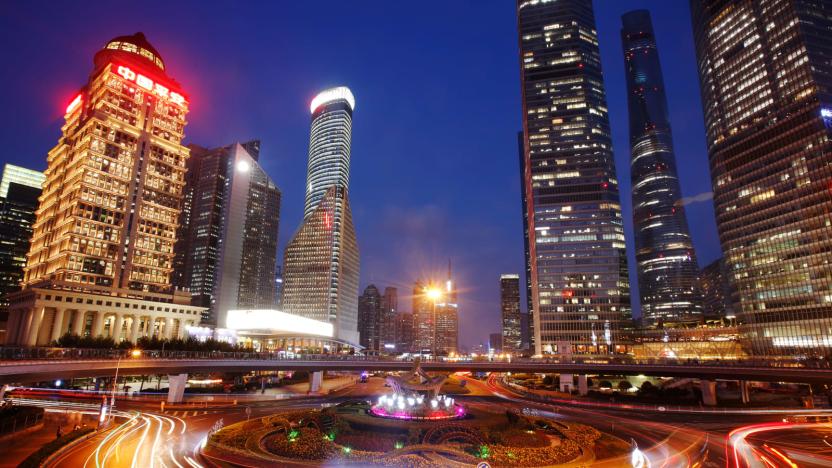chinesegovernment
Latest

China will start using car surveillance system in July, says WSJ
China is not holding back on plans to monitor its citizens. Starting on July 1st, when residents register cars, radio-frequency identification (RFID) tags will be attached to windshields to track the vehicles, The Wall Street Journal reports. While car owners won't be forced to add the tags immediately, all new cars will need to have them installed starting next year. Since 30 million vehicles are sold in China annually, the country will soon be able to monitor the locations of a vast swathe of cars under the project.

Tim Cook meets Chinese Vice Premier in Beijing, talks IP law, worker rights
Tim Cook's visit to China this week marks his first as Apple's CEO, but what originally appeared to be a casual jaunt to Beijing with possible carrier meetings on the agenda, has turned out to be a carefully orchestrated visit, including appointments with top government officials to talk economic development and intellectual property rights. Xinhua, the country's official press agency (and therefore not the most objective of sources), reported that Chinese Vice Premier Li Keqiang stated that the country will "strengthen intellectual property rights protection" and "pay more attention to caring for workers." Typical of state-sponsored releases, the report failed to expand on either statement, but even if nothing comes of this particular meeting, Keqiang is in line to take over as Premier next year, making him a solid addition to Cook's rolodex. There's a Chinese-language video of the encounter waiting just past the break.

China tightens grip on VPN access amid pro-democracy protests, Gmail users also affected
If you've been struggling to get your dose of Facebook or Twitter in China recently, then you're probably one of the many Internet users who've had their VPN access -- either free or paid for -- blocked over the last two weeks or so. That's right, the notorious Great Firewall of China is still alive and well, and leaving proxy servers aside, VPN is pretty much the only way for keen netizens to access websites that are deemed too sensitive for their eyes; or to "leap over the wall," as they say. Alas, the recent pro-democracy protests didn't exactly do these guys any favor -- for one, their organizers used Twitter along with an overseas human rights website to gather protesters, and with the National People's Congress meetings that were about to take place (and wrapped up last night), it was no surprise that the government went tough on this little bypassing trick. To make matters worse, PC World is reporting that Gmail users are also affected by slow or limited access, despite the service previously being free from China's blacklist. We reached out to a handful of major VPN service providers, and they all confirmed a significant increase in the amount of blockage -- possibly by having their servers' PPTP IP addresses blocked -- over the last two weeks. One company even spotted the Chinese government subscribing to its paid service, only to work its way into the network to locate the company's PPTP server list, and then put them behind the firewall. Fortunately for some, the better-off companies had backup servers to rapidly resolve the problem, whereas the cheaper and free services were unable to dodge the bullet. This just goes to show that sometimes you get what you pay for. That said, with practically unlimited human hacking power at its disposal, it doesn't take much for the firewall to shut down everything heading its way. For the sake of our friends and expats there, let's just hope that the government will take things down a notch as soon as the storm calms.

China backtracks, makes Green Dam 'optional'
China's efforts to preload the Green Dam censorware on all PCs in the country have been going pretty poorly so far, with accusations of software piracy and manufacturer displeasure causing delays. Now the government is backing down from that stance, stating that the original regulation wasn't "expressed clearly, and gave everyone the impression that [Green Dam] was mandatory." For home computers, that means the internet filtering software will likely continue to be bundled as an optional (and inactive) extra -- something Acer, ASUS, Lenovo and Sony have been doing since early July -- but if you're at school, an internet cafe or some other public access point, expect to see Green Dam running, alive and well. Censorship is dead, long live censorship. [Via CNET]


